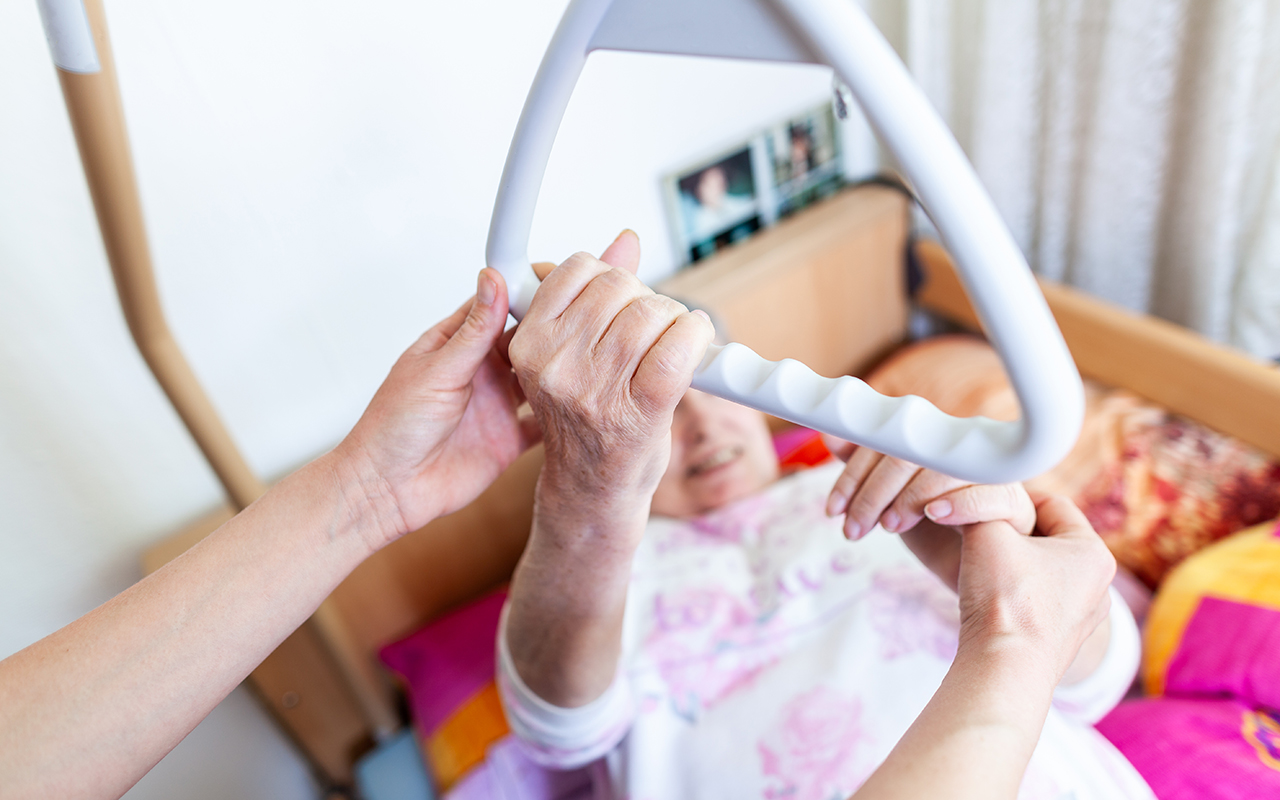Share
When it comes to in-home care for older adults, patient-centered care is one of the key components of meeting quality standards. As part of that, it’s critical for the family members to be involved in the decision-making process as much as possible.
Why Family Involvement Is Crucial for In-Home Care Decisions
By working together, family members can reduce some of the stress of choosing the right professional caregiver and give loved ones much-needed support. In turn, their involvement avoids damaging relationships and delaying comprehensive care for older adults.
Additionally, family involvement can provide insight for in-home care professionals, which can improve the safety of their loved ones. Let’s look at the roles that each family member can assume and why their involvement is so beneficial.
Sons and Daughters
In general, a son or daughter becomes the primary family caregiver when parents get sick. However, any other living sons or daughters can chip in as well. They may have special skills or expertise in helping their parents find professional in-home care. For instance, they can perform research, make a list of critical questions to ask, manage the finances or provide legal assistance.
Brothers and Sisters
Brothers and sisters of older adults might be able to share possible triggers for their siblings and recommendations for caregivers that they or friends have hired before. Whether the feedback is negative or positive, it helps narrow down the options to find the best caregiver to meet their siblings’ needs. Also, brothers and sisters are often trusted voices for those who need guidance to make a decision.
Friends of the Family
Close friends of older adults could offer unique insight and perspectives that might be overlooked by family members. Sometimes, they know intimate details that aging parents hide from their children and siblings. Other times, they have special skills or expertise in areas that family members don’t. They could have caregiver recommendations as well.
Grandchildren
Grandchildren are often overlooked when it comes to making care decisions regarding their grandparents. However, they could have different viewpoints and more candid insight. Furthermore, they have unique skills when it comes to researching and validating in-home caregivers. For instance, they may be more bold and less afraid of offending caregivers when it comes to asking questions.
Choosing Caring Home Care for In-Home Assistance
Using a nurse registry is one option for choosing in-home care for a loved one. Caring Home Care is a service that coordinates care for families and their aging loved ones. From companionship and respite care to live-in caregiver assistance, a range of services are available.
How Caregivers Can Reduce Injury While Assisting Seniors Providing daily care for seniors is meaningful work. It can also be physically demanding. Many caregiver injuries happen during lifting, transferring, or repositioning seniors. These injuries are often preventable when proper techniques are used. Learning caregiver injury prevention strategies protects both the caregiver and the senior. It
Why Professional Home Care Is Safer Than Family Only Care Caring for an aging loved one is deeply personal. Many families step in with the best intentions. However, as care needs increase, family only caregiving can become overwhelming and risky. This is where professional home care plays a critical role. Professional caregivers are trained, experienced,
Connecting During the Thanksgiving Holiday: How to Support Your Elder Relatives The Thanksgiving holiday is a time filled with warmth, gratitude, and meaningful family traditions. However, for many older adults, it can also be a period of loneliness or emotional distance. This is especially true for seniors who live alone, have limited mobility, or are
Transition to In-Home Care: Helping Seniors Adjust Comfortably to Elderly Care Services Understanding the In-Home Care Transition The decision to begin in-home care is a big step for both seniors and their families. It often marks the start of a new chapter—one focused on safety, comfort, and support. However, the in-home care transition can bring
Need A Caregiver? Fill Out Form Below
With our competitive rates, we make receiving in-home care affordable regardless of whether you’re using your insurance or paying out of pocket.






